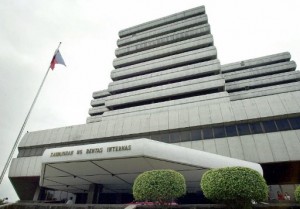MANILA, Philippines—The Bureau of Internal Revenue is in talks with the Land Transportation Franchising and Regulatory Board to draw up a system to curb tax evasion in the transport sector.
In particular, the BIR wants the LTFRB to require operators of public utility vehicles to submit their income tax returns whenever they renew licenses.
“We want to partner with the LTFRB, among other government agencies, in the pursuit of our tax campaign,” BIR Deputy Commissioner Estela Sales told the Inquirer.
Once the measure is implemented, the BIR will be able to determine the tax delinquents among PUV operators. This will further boost the government’s anti-tax evasion drive, Sales said.
As of the end of 2012, bus franchises totaled 8,077, covering 26,483 units.
Sales said the BIR sought to widen the scope of its anti-tax evasion drive and cover as many sectors as possible.
The BIR has been trying to seal similar deals with other government agencies.
Earlier, the BIR asked the Professional Regulation Commission to require professionals to submit income tax returns whenever they renew their licenses. The BIR said the PRC would be implementing this requirement soon.
Also, the BIR has asked the Department of Public Works and Highways to require potential contractors of government infrastructure projects to present their income tax returns. This requirement has been in effect since last year.
The BIR, which accounts for at least 60 percent of the government’s revenues, is under pressure to plug foregone state revenues estimated at P450 billion a year.
The bureau has been tasked to collect P1.46 trillion in taxes this year—up by 16.8 percent from its 2013 goal of P1.25 trillion.
Preliminary figures showed that the BIR likely fell short of its revenue target last year, although its collections were expected to grow by at least 10 percent from the P1.06 trillion reported in 2012.
As part of its antitax evasion drive, it regularly files tax evasion cases with the Department of Justice.
Since 2010, the BIR has filed over 200 tax evasion cases. Most of the cases, however, are still pending with the DOJ and have not yet been forwarded to the courts.


